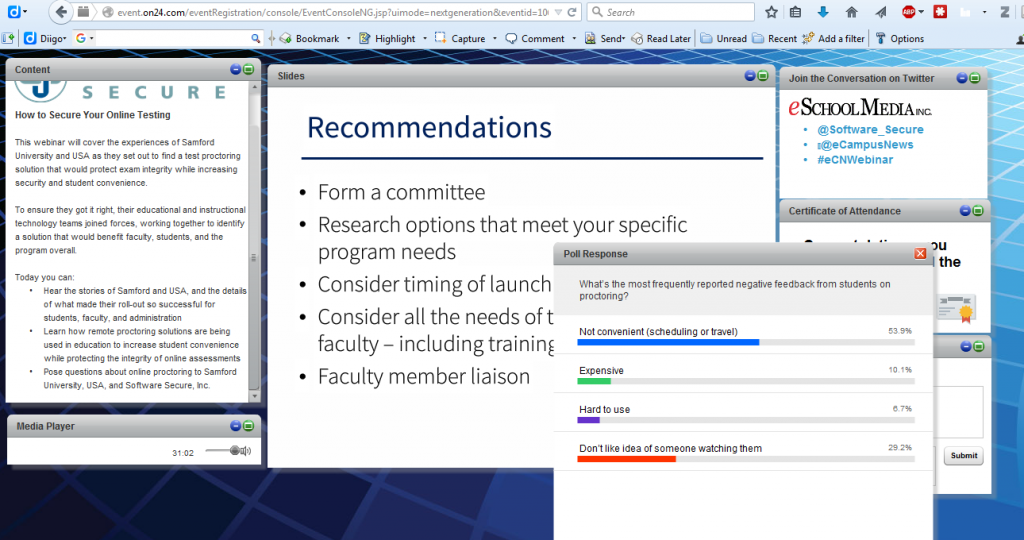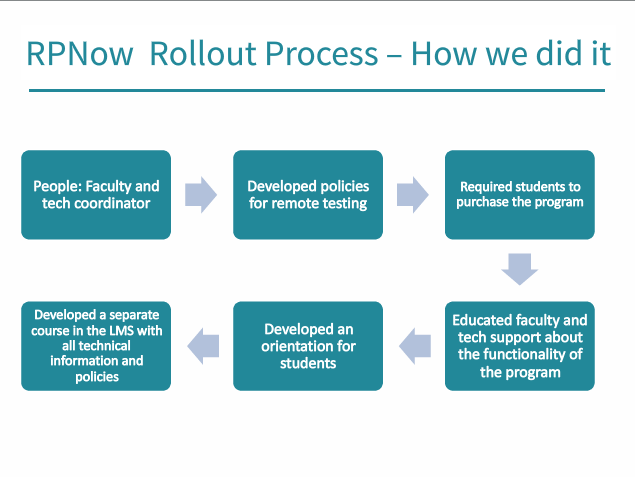Creating Digital Badges to Incentivize Participation in Faculty Development
November 7, 2018 | 1:00 – 2:00 p.m. EST
Creating Digital Badges to Incentivize Participation in Faculty Development
Badges are more than just participation trophies. Design them to commensurately represent the knowledge and skills gained.
While many institutions have used digital badges as an alternative way to recognize the skills and knowledge developed by students, some are also starting to use this approach in their in-house professional development programs – especially in faculty development programs.
By offering well-designed badges that accompany these programs, you can boost both participation and impact. Join us for this online training and learn how to design your badges to encourage deeper engagement that goes beyond “showing up”. Our instructor, Lindsay Doukopoulos, will share best practices for badging criteria at Auburn University, where 82% of participants chose to earn badges at annual professional development workshops.
indsay Doukopoulos Ph.D.
Assistant Director, Biggio Center for the Enhancement of Teaching and Learning, Auburn University
Lindsay’s teaching expertise includes experiential, active, and team-based learning in small and large lecture formats. Her research interests include instructional technologies and the use of digital artifacts (e.g., badging, ePortfolios, etc.) to assess and enhance integrated learning, gameful learning, and metacognition for students and faculty.
After a brief overview of our instructor’s faculty development badging program, we’ll walk through several badges Auburn has implemented for faculty. For each badge collection, we’ll address the following:
- How was it designed, and what elements were considered in the design process?
- What are the criteria for earning the badges? Why?
- Who has earned the badges to date?
- What impact did badge earners self-report?
- What kind of data or artifacts did faculty submit to earn this badge / badge constellation? What did these show about how faculty were using what they learned?
We’ll close with a brief exercise that will let you start designing your own badge criteria for a program on your campus.
$525 through Oct 31$600
Live Webcast + Recording
- Access to the live webcast: Invite your team!
- Links to all presentation materials and resources
- Permanent recording of the live webcast
++++++++++++++++
+++++++++++++++++
more on badges in this IMS blog
https://blog.stcloudstate.edu/ims?s=badges
 Since 2008, Mr. Vinson Houston has served as vice president for information technology at Jacksonville State University. Prior to that, Mr. Houston served as Director of Telecommunications for JSU, beginning in 2005. Mr. Houston currently serves on the board of directors for the Alabama Supercomputer Authority and is on the CORE Executive Committee that leads initiatives promoting PK-20 collaboration related to using new technologies in the classroom. He holds a B.A. and an M.B.A. from Jacksonville State University.
Since 2008, Mr. Vinson Houston has served as vice president for information technology at Jacksonville State University. Prior to that, Mr. Houston served as Director of Telecommunications for JSU, beginning in 2005. Mr. Houston currently serves on the board of directors for the Alabama Supercomputer Authority and is on the CORE Executive Committee that leads initiatives promoting PK-20 collaboration related to using new technologies in the classroom. He holds a B.A. and an M.B.A. from Jacksonville State University.



 feedback on proctoring
feedback on proctoring